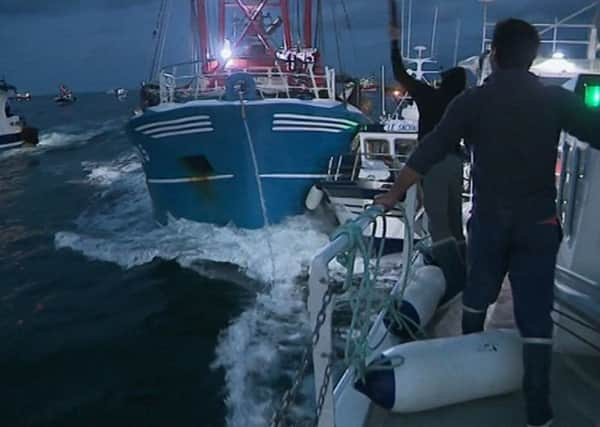Stephen Jardine: Brexit may see food regulations relaxed


I’ve spent this week on holiday in Greece. Most days we had lunch in the same taverna. It was straight out of a Greek Tourist Board advert with great food, charming staff and the turquoise sea virtually lapping at your feet. But what I remember most was the bill. It was ridiculously small and came with a bunch of grapes, snipped by the waiter from the vine growing above our heads. Now that’s hospitality. It’s also a breach of food hygiene rules.
If we ever start growing grapes in Scotland, a restaurateur trying the same trick will have to first get them washed and then certified by Environmental Health as fit for human consumption. That might just spoil the magic moment. I’m not suggesting the Greeks are lax when it comes to food hygiene. They may even have regulations on unwashed grapes proffered to the public. However they choose their battles while we stick slavishly to every letter of the law.
Advertisement
Hide AdAdvertisement
Hide AdI lived in Paris for a couple of years and used to marvel at the sights and smells in my local fromagerie. They sold cheeses so deep in mould it was hard to tell if it was made that way or wearing a special fur coat. On hot days, the cheese would ooze in the window. My wife was pregnant at the time and the smell sent her over the edge. Back in the UK, that would never be an issue. Here cheesemakers makers are thrown to the wolves for the slightest perceived infringement of European food hygiene regulations. If you asked a French person about the different approaches I guarantee you a big runny tub of Epoisses, they would simply shrug.
This week that attitude came home to roost off the coast of Normandy when nearly 40 French fishing boats confronted a smaller group of British scallop fishermen who they claim are depleting stocks in the area. Boats collided and stones were thrown as anger boiled over after months of growing tension with a Scottish vessel was caught up in the trouble. However the British boats were operating legally, leading Mike Park, of the Scottish White Fish Producers Association, to accuse the French of “high seas piracy”. At the root of the clash is international research showing overfishing. The French blame the British but, with only six per cent of scallops landed by UK boats, it seems more likely Normandy fishermen are looking for a scapegoat across the Channel.
From allowing French farmers to blockade Channel ports to permitting French cheesemakers to sell produce that would be under lock and key here, the approach to legislation across the EU has been uniform in theory but complex in reality. As we speed headlong towards a hard Brexit, this is one of the many challenges we face. Remainers point to the great EU food statute book as proof of what will be lost if we go it alone and they are right. The legislation is important but implementation also matters. To be able to compete moving forward we need to understand not just the law but also how our competitors deal with it. Some public health issues can’t be up for discussion but below that Brexit will at least give us the chance to decide what food regulations are really necessary to create a safe and genuinely fair playing field.